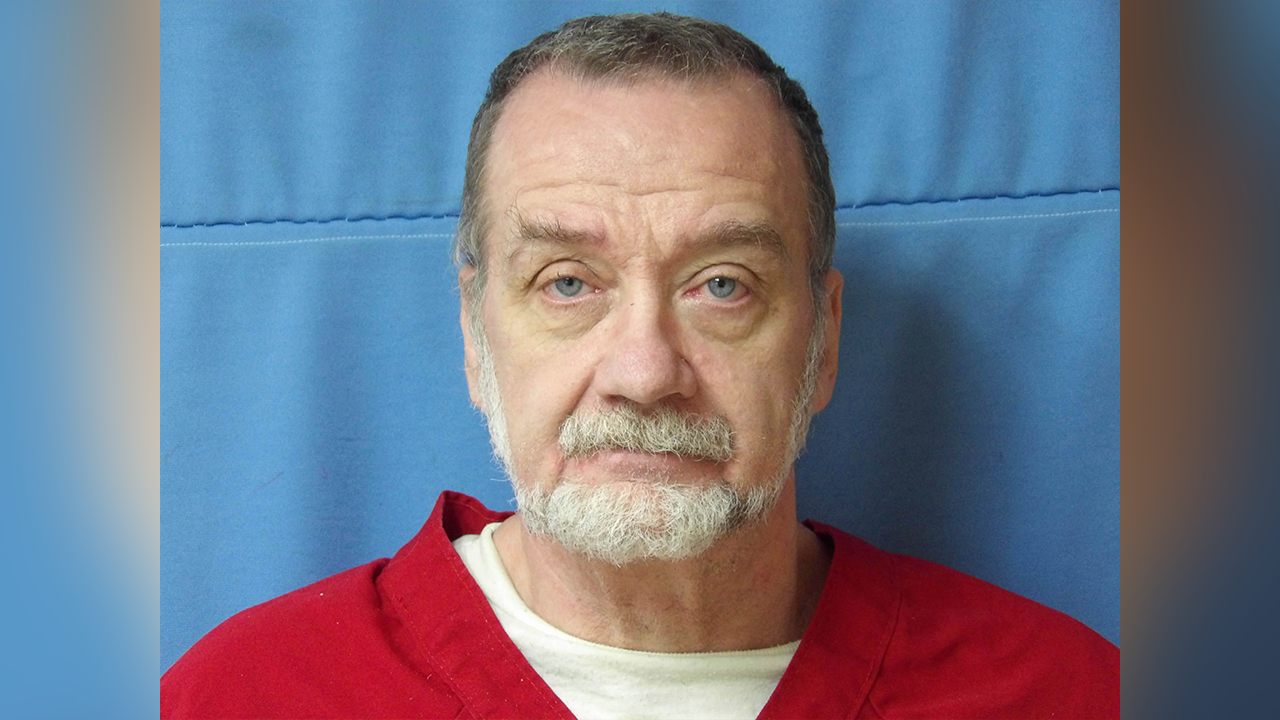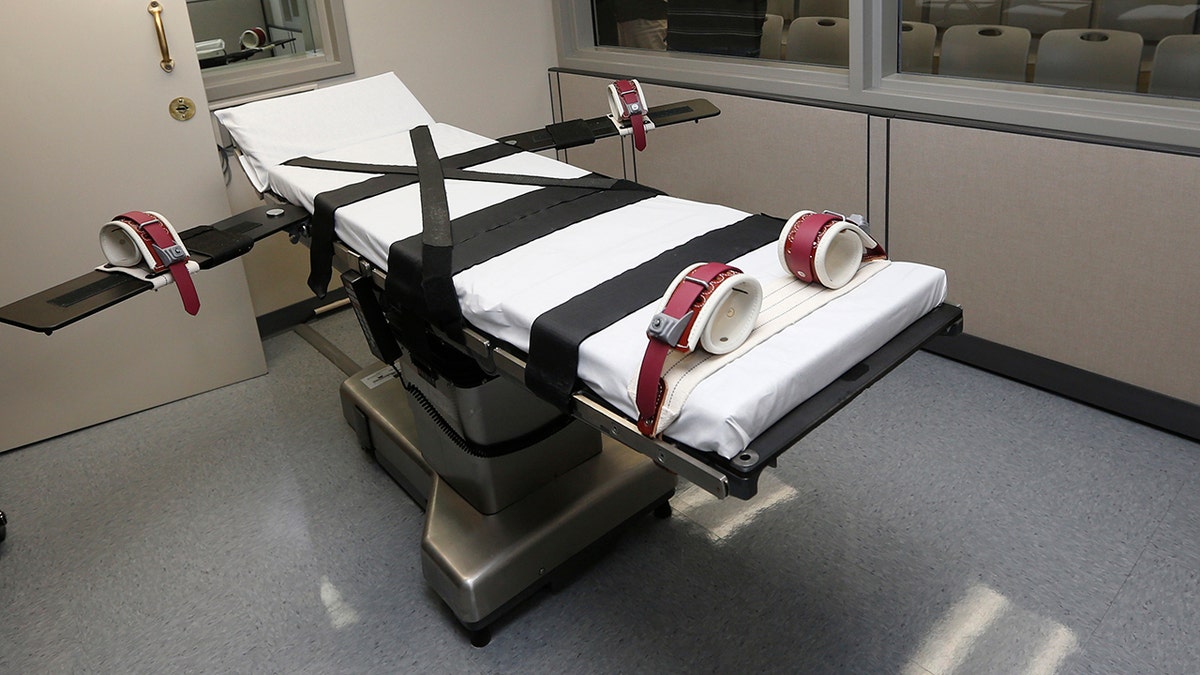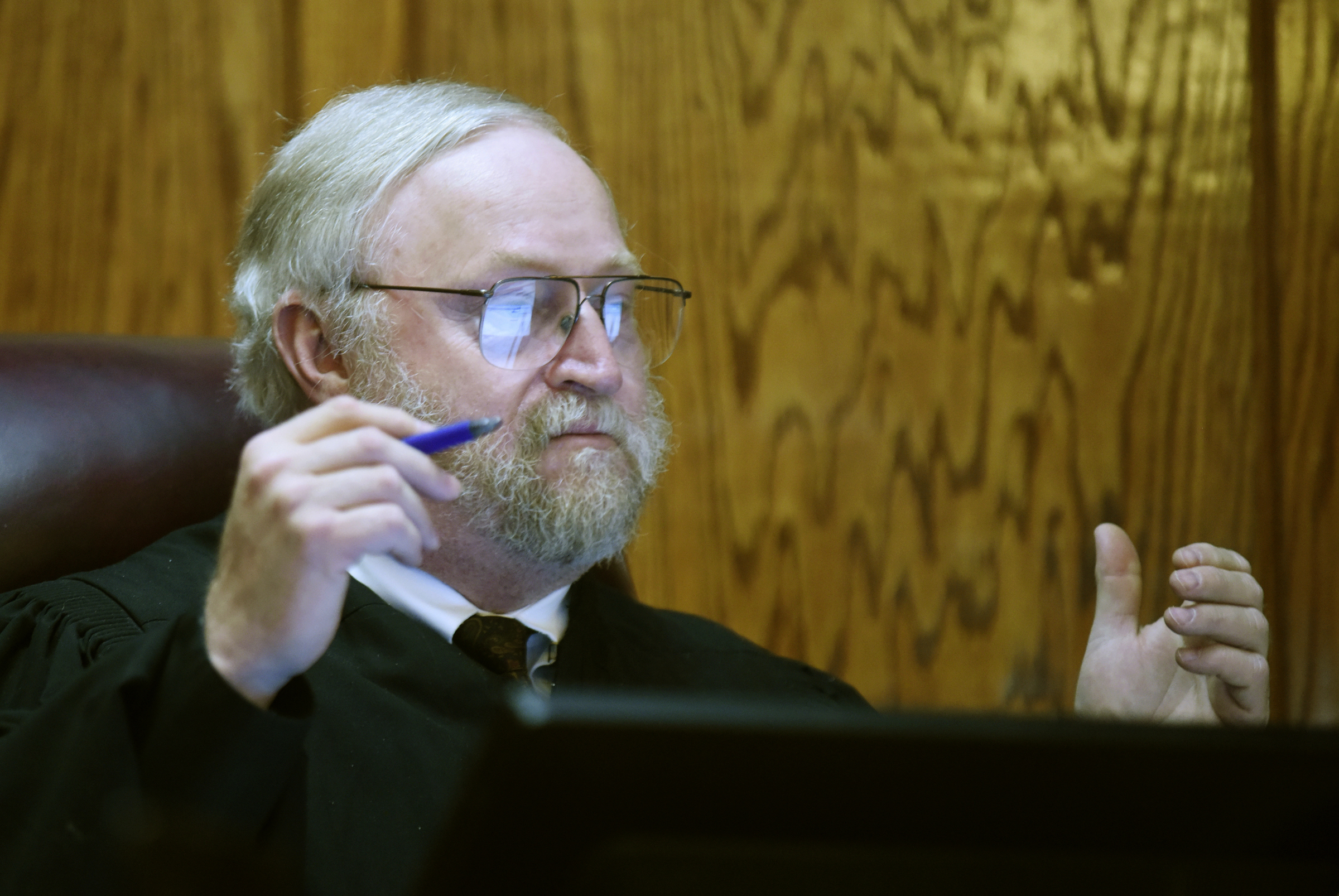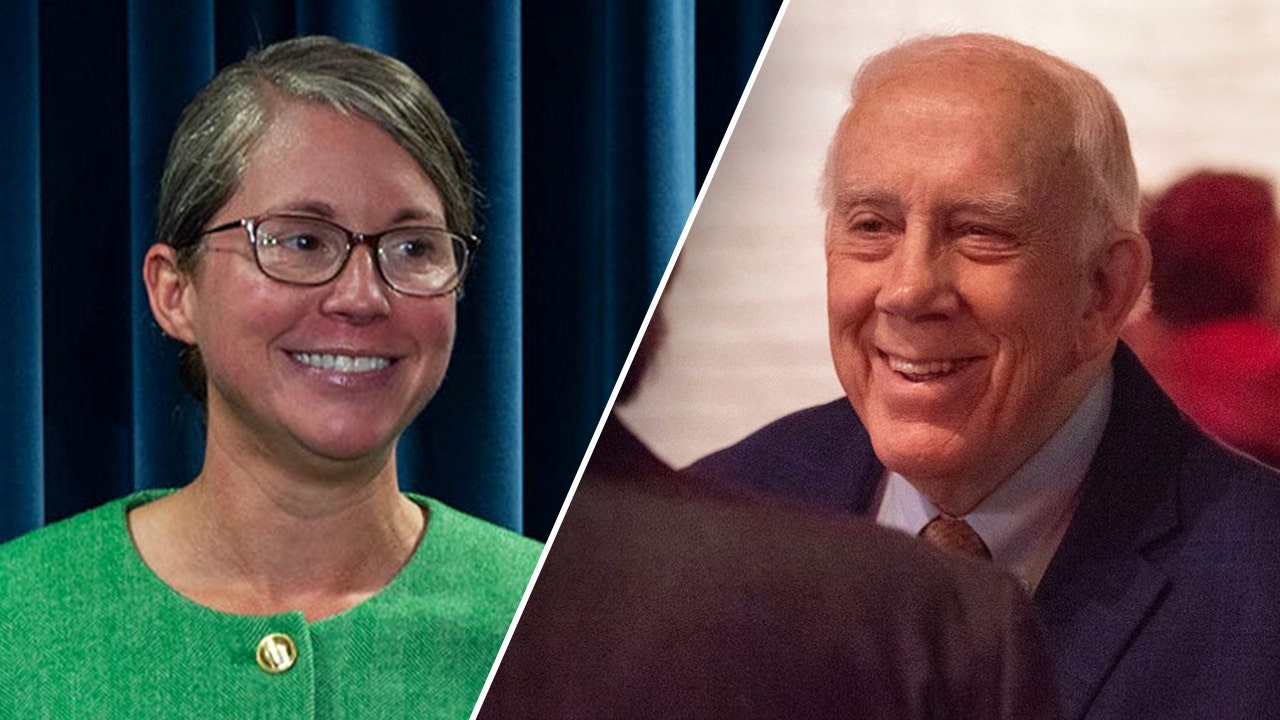Mississippi
Relief for Mississippi’s hospitals could happen in 2024 – The Oxford Eagle

Relief for Mississippi’s hospitals could happen in 2024
Published 7:20 am Wednesday, September 20, 2023
- Sid Salter
By Sid Salter
Columnist
Democratic gubernatorial nominee Brandon Presley has pledged that if he is elected governor in November, he will expand the state’s Medicaid program “on Day 1” of his tenure. In today’s parlance, good luck with that.
The structure of Mississippi’s state government makes Presley’s promise, however well-intentioned or sincere, difficult in the extreme. Or as the late Mississippi Supreme Court Justice William N. Etheridge, Jr., wrote in his book “Modernizing Mississippi’s Constitution” in 1950: “The governor is given the chief executive power and a mandate to faithfully enforce the laws. However, that obligation does not carry with it a corresponding grant of power.”
Things haven’t changed dramatically on that score in the last 73 years. The 1890 Mississippi Constitution created a “weak governor, strong Legislature” system of government.
Nearly a century after the 1890 Constitution was adopted, Mississippi’s governor was granted the increased powers of gubernatorial succession and the authority to propose an executive budget.
But overall, the 1890 constitution still vests the lion’s share of raw political power in the state Legislature. Therefore, the legislative leadership since 1890 has wielded enormous power.
Presley’s pledge, it would seem, would be predicated on expanding Medicaid via executive order and through obtaining a federal waiver. But spending money to obtain the waiver or to operate an expanded Medicaid program would seem under the law to require assistance, approval, and most importantly, appropriations from the Mississippi Legislature.
Recent polls show incumbent Republican Gov. Tate Reeves leading over Presley’s challenge. Reeves has been consistent and firm in his opposition to Medicaid expansion. But regardless of whether or not Presley can pull off an upset in November, it appears that chances for fiscal relief for Mississippi’s struggling hospitals are improving and that as an institution, the GOP-controlled Legislature is angling toward action in 2024.
Lt. Gov. Delbert Hosemann decisively dispatched challenger Chris McDaniel in the GOP primaries despite McDaniel hammering Hosemann over his support for some form of fiscal help for the state’s hospitals. Hosemann continues to support that concept and is planning legislative hearings on the topic for the 2024 session.
Current GOP House Speaker Philip Gunn of Clinton is a solid opponent of Medicaid expansion. But Gunn’s presumptive successor in 2024, current House Speaker Pro Tempore Jason White, R-West, lives about 17 miles from the hospital in Kosciusko and about 20 miles from the hospital in Lexington. The state’s larger trauma hospitals are a long ambulance ride away from West in any direction.
In other words, White understands the plight of rural hospitals, and like Hosemann, is willing to entertain substantive legislative discussions of solutions to those challenges.
What is also coming into focus is that any legislative solution will be aimed at providing health coverage for the working poor – people who hold jobs but don’t earn enough to afford health insurance. A work requirement will meet with strong opposition, but it appears to be one of the points necessary to get the Medicaid expansion question off-center in the state.
Public health care for Mississippi’s poor, working poor, uninsured or underinsured is an expense that will ultimately be borne by the taxpayers. The only real mystery is whether the lion’s share of those costs is paid by federal, state or local taxpayers or a combination of all three with varying percentages of responsibility.
Currently, Mississippi “pays” for that health care through Medicaid dollars and the delivery of uncompensated care. Nationally, uncompensated care in the U.S. is estimated to comprise 55 percent of all emergency care delivered. In Mississippi’s rural hospitals, that percentage is believed to be significantly higher.
So why are Mississippi’s hospitals struggling? Rural hospitals nationally are struggling because of changes in how rural people access health care.
But in states like Mississippi with extreme levels of poverty and high populations of uninsured or underinsured patients, there are two federal laws virtually dictating financial stress in poor states – the federal Hill-Burton Act and Emergency Medical Treatment Act.
At a minimum, Mississippi hospitals provide an estimated $600 million in annual uncompensated care.
Health care coverage for the state’s working poor will without question make the federal mandates for providing uncompensated care easier to shoulder. It would be a welcome start.
Sid Salter is a syndicated columnist. Contact him at sidsalter@sidsalter.com.

Mississippi
Southeast Mississippi Christmas Parades 2024 | WKRG.com

MISSISSIPPI (WKRG) — It’s beginning to look a lot like Christmas on the Gulf Coast and that means Santa Claus will be heading to town for multiple parades around the area.
WKRG has compiled a list of Christmas parades coming to Southeast Mississippi.
Christmas on the Water — Biloxi
- Dec. 7
- 6 p.m.
- Begins at Biloxi Lighthouse and will go past the Golden Nugget
Lucedale Christmas Parade
Mississippi
‘A Magical Mississippi Christmas’ lights up the Mississippi Aquarium

GULFPORT, Miss. (WLOX) – The Mississippi Aquarium in Gulfport is spreading holiday cheer with a new event, ‘’A Magical Mississippi Christmas.’
The aquarium held a preview Tuesday night.
‘A Magical Mississippi Christmas’ includes a special dolphin presentation, diving elves, and photos with Santa.
The event also includes “A Penguin’s Christmas Wish,” which is a projection map show that follows a penguin through Christmas adventures across Mississippi.
“It’s a really fun event and it’s the first time we really opened up the aquarium at night for the general public, so it’s a chance to come in and see what it’s like in the evening because it’s really spectacular and really beautiful,” said Kurt Allen, Mississippi Aquarium President and CEO.
‘A Magical Mississippi Christmas’ runs from November 29 to December 31.
It will not be open on December 11th, December 24th, and December 25th.
Tickets can be purchased online or at the gate.
The event is made possible by the city of Gulfport and Coca-Cola Bottling Company.
See a spelling or grammar error in this story? Report it to our team HERE.
Copyright 2024 WLOX. All rights reserved.
Mississippi
Mississippi asks for execution date of man convicted in 1993 killing, lawyers plan to appeal case to SCOTUS

Mississippi Attorney General Lynn Fitch, a Republican, is seeking an execution date for a convicted killer who has been on death row for 30 years, but his lawyer argues that the request is premature since the man plans to appeal to the U.S. Supreme Court.
Charles Ray Crawford, 58, was sentenced to death in connection with the 1993 kidnapping and killing of 20-year-old community college student Kristy Ray, according to The Associated Press.
During his 1994 trial, jurors pointed to a past rape conviction as an aggravating circumstance when they issued Crawford’s sentence, but his attorneys said Monday that they are appealing that conviction to the Supreme Court after a lower court ruled against them last week.
Crawford was arrested the day after Ray was kidnapped from her parents’ home and stabbed to death in Tippah County. Crawford told officers he had blacked out and did not remember killing her.
TEXAS LAWMAKER PROPOSES BILL TO ABOLISH DEATH PENALTY IN LONE STAR STATE: ‘I THINK SENTIMENT IS CHANGING’
Mississippi death row inmate Charles Ray Crawford, who was convicted and sentenced to death in 1994 in the 1993 kidnapping and killing of a community college student, 20-year-old Kristy Ray. (Mississippi Department of Corrections via AP)
He was arrested just days before his scheduled trial on a charge of assaulting another woman by hitting her over the head with a hammer.
The trial for the assault charge was delayed several months before he was convicted. In a separate trial, Crawford was found guilty in the rape of a 17-year-old girl who was friends with the victim of the hammer attack. The victims were at the same place during the attacks.
Crawford said he also blacked out during those incidents and did not remember committing the hammer assault or the rape.
During the sentencing portion of Crawford’s capital murder trial in Ray’s death, jurors found the rape conviction to be an “aggravating circumstance” and gave him the death sentence, according to court records.
PRO-TRUMP PRISON WARDEN ASKS BIDEN TO COMMUTE ALL DEATH SENTENCES BEFORE LEAVING

During the sentencing portion of Crawford’s capital murder trial, jurors found his prior rape conviction to be an “aggravating circumstance” and gave him the death sentence. (iStock)
In his latest federal appeal of the rape case, Crawford claimed his previous lawyers provided unconstitutionally ineffective assistance for an insanity defense. He received a mental evaluation at the state hospital, but the trial judge repeatedly refused to allow a psychiatrist or other mental health professional outside the state’s expert to help in Crawford’s defense, court records show.
On Friday, a majority of the 5th U.S. Circuit Court of Appeals rejected Crawford’s appeal.
But the dissenting judges wrote that he received an “inadequately prepared and presented insanity defense” and that “it took years for a qualified physician to conduct a full evaluation of Crawford.” The dissenting judges quoted Dr. Siddhartha Nadkarni, a neurologist who examined Crawford.
“Charles was laboring under such a defect of reason from his seizure disorder that he did not understand the nature and quality of his acts at the time of the crime,” Nadkarni wrote. “He is a severely brain-injured man (corroborated both by history and his neurological examination) who was essentially not present in any useful sense due to epileptic fits at the time of the crime.”

Photo shows the gurney of an execution chamber. (AP Photo/Sue Ogrocki, File)
CLICK HERE TO GET THE FOX NEWS APP
Crawford’s case has already been appealed multiple times using various arguments, which is common in death penalty cases.
Hours after the federal appeals court denied Crawford’s latest appeal, Fitch filed documents urging the state Supreme Court to set a date for Crawford’s execution by lethal injection, claiming that “he has exhausted all state and federal remedies.”
However, the attorneys representing Crawford in the Mississippi Office of Post-Conviction Counsel filed documents on Monday stating that they plan to ask the U.S. Supreme Court to overturn the appeals court’s ruling.
The Associated Press contributed to this report.
-

 Science1 week ago
Science1 week agoTrump nominates Dr. Oz to head Medicare and Medicaid and help take on 'illness industrial complex'
-

 Politics1 week ago
Politics1 week agoTrump taps FCC member Brendan Carr to lead agency: 'Warrior for Free Speech'
-
/cdn.vox-cdn.com/uploads/chorus_asset/file/25739950/247386_Elon_Musk_Open_AI_CVirginia.jpg)
/cdn.vox-cdn.com/uploads/chorus_asset/file/25739950/247386_Elon_Musk_Open_AI_CVirginia.jpg) Technology1 week ago
Technology1 week agoInside Elon Musk’s messy breakup with OpenAI
-

 World1 week ago
World1 week agoProtesters in Slovakia rally against Robert Fico’s populist government
-

 Health5 days ago
Health5 days agoHoliday gatherings can lead to stress eating: Try these 5 tips to control it
-

 News1 week ago
News1 week agoThey disagree about a lot, but these singers figure out how to stay in harmony
-

 Health2 days ago
Health2 days agoCheekyMD Offers Needle-Free GLP-1s | Woman's World
-

 News1 week ago
News1 week agoGaetz-gate: Navigating the President-elect's most baffling Cabinet pick














